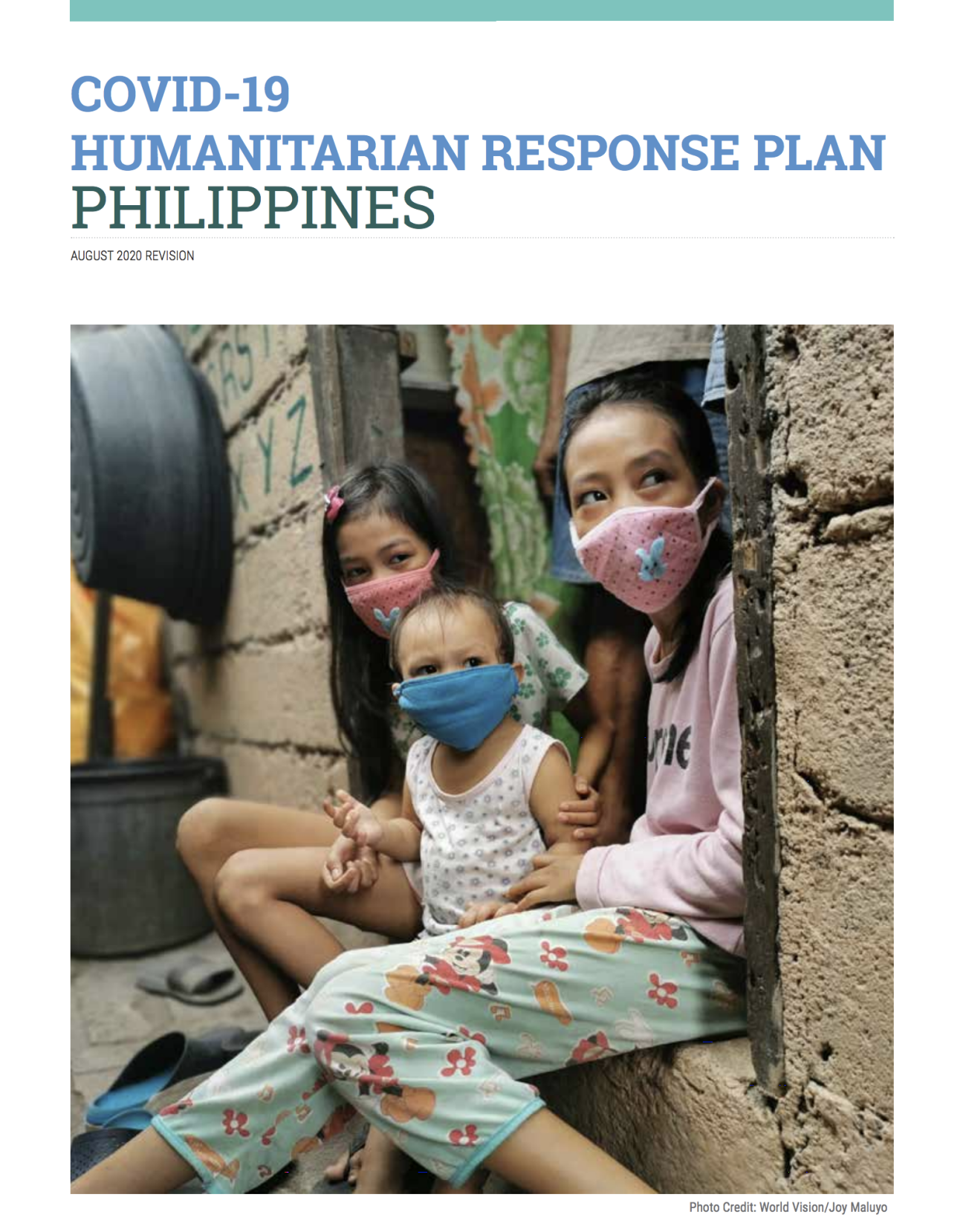MANILA, 4 August 2020 -- The United Nations (UN) and humanitarian partners in the Philippines launched today the largest international humanitarian response plan in the country since Typhoon Haiyan in 2013.
With financial requirements of about P6 billion, the Humanitarian Country Team (HCT) COVID-19 Response Plan is focused on providing critical health interventions and multi- sectoral humanitarian assistance to the 5.4 million poorest and most marginalized Filipinos living in poor, densely populated urban areas. It also prioritizes the safety and well-being of women and girls.
“The pandemic is challenging the capacity of response of any single country in the world. Our role is to make best use of our global knowledge and resources to join Government’s efforts to contribute to the safety and well-being of the Filipino people,” said Gustavo Gonzalez, UN Resident Coordinator and Humanitarian Coordinator in the Philippines.
The HCT response plan focuses on supporting the government in addressing the most immediate challenges relating to health, food security, water and sanitation, protection as well as risk communication, among others.
Some 50 country-based UN and non-governmental partners are contributing to the response, bringing together national and international NGOs and their networks, faith-based organizations as well as the private sector. Twenty-three (23) per cent of the response plan has been mobilized, so far.
The HCT response plan to COVID-19 spans until the end of the year, but it will be updated as needs resulting from the pandemic change.
The evolving nature of this document reflects the manner in which the humanitarian community in the Philippines rapidly mobilized and came together in a coordinated and inclusive way to support the government-led efforts in response to the COVID-19 pandemic, as well as help address socioeconomic needs emerging from contraction of the economy and unprecedented levels of unemployment. The plan is also a stepping stone to the mid and long term support of the UN to the COVID-19 recovery, to be developed in the upcoming UN Socioeconomic and Peacebuilding Framework.
“As we work together to support government efforts to contain the virus against the demand to restore the economy, the UN and humanitarian partners will continue to seize opportunities to build greater resiliency, equity and inclusivity, in short, to build forward better,” Gonzalez explained.
The Philippines has also been included in the Global Humanitarian Response Plan, with a total of $10.3 billion, the largest in history, bringing together the response plans of 63 of the hardest hit and most vulnerable countries.
For more information, please contact:
Teresa L. Debuque
National Information Officer,
United Nations Information Centre (UNIC) Manila
Email: debuque@un.org;
Mobile number: +63 915 0612351


